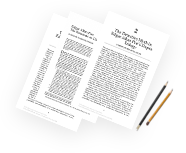(1) THINK LIKE A NURSE: 1 page What qualities are essential to your own personal definition of health? How do you define illness? (2) Think Like a Nurse: Half page Suppose you have been providing towel baths to a patient who has mild dementia. One day a visiting family member says, “My father tells me that he has not had a bath all week. What’s going on here?” What would you do? How could you help to prevent this misunderstanding in the future? (3) Think Like a Nurse: Half a page Refer to the Meet Your Patient scenario in the textbook. Karli perceives herself as unlovable “looking this way.” You should not assume that you know exactly what Karli means by this. Which of her words do you need to clarify with her? What might you say to her to get her to provide more information about the psychosocial meaning of her statement? (4) Think Like a Nurse: Half a page As a nurse, how can you promote overall wellness in a family with a critically ill member? (5) Think Like a Nurse: Half a page What do you do to keep yourself healthy? What do you do to treat minor illnesses when you do not want to see a physician? What aspects of the indigenous and professional systems have you used for yourself or your family? Give examples. (6) Think Like a Nurse: 1 page Refer to Charles Johnson (Meet Your Patient). What data do you have about Mr. Johnson’s spirituality? What speculations might you make about his spirituality based on your past experiences and knowledge, and the limited data you have? How does your religion or spirituality differ from Mr. Johnson’s? How is it similar? Can you think of problems these differences and similarities could cause you in caring for him? (7) Think Like a Nurse: 1 page Mr. Klein is an 86-year-old man whose wife died of heart disease 2 months ago. He has two adult children who regularly visit him. He also has a supportive pastor, Mr. Owens, who meets him in the park to share stories. Mr. Owens is 30 years old and has been raising his 5-year-old daughter alone after the sudden death of his wife 6 months ago in an automobile accident. His parents and siblings live out of state. Both of these men miss their wives very much. What factors do you think play a role in each man’s grief? Who do you think will “get over it” faster? What are some issues that may make each man’s grief uniquely difficult? (8) Think Like a Nurse: half a page You note that your client with asthma is having increasing difficulty breathing. You call the provider who gives you a telephone order for an asthma medication and then hangs up. When you enter the order electronically as a verbal order, you find out the medication is a nonformulary medication that your pharmacy does not carry. Is this an acceptable reason to take a verbal order? The provider gets upset when you call back and says, “I ordered what I wanted.” How would you handle this situation? How might this situation have been avoided? (9) Think Like a Nurse: 1 page Recall the clients you encountered at the community health fair (Meet Your Patients, in Volume 1). Two-year-old Jason’s axillary temperature was 101.8°F (38.8°C); his skin was warm, dry, and flushed. His mother told you that he had been eating poorly and was very irritable. What changes in behavior alert you that something is wrong? Do you have enough theoretical knowledge or patient data to know what is going on? What, if any, additional information about the patient situation do you need to understand the meaning of Jason’s temperature reading? (10) Think Like a Nurse: half a page Think of an example of communication in which the connotative meaning may be different from the denotative meaning of what is said. (11) Think Like a Nurse: half a page Think about olfaction as an assessment technique. Give two or three additional examples of data you might collect through the use of smell. You are caring for a woman who has no hair on her head. How might you determine the cause of her hair loss? What other assessments should you perform? (12) Think Like a Nurse: half a page You are working as a nurse on a medical-surgical unit. What roles might you play in the chain of infection? That is, what “links” might you be?
#Fundamentals #Nursing #Nurse




